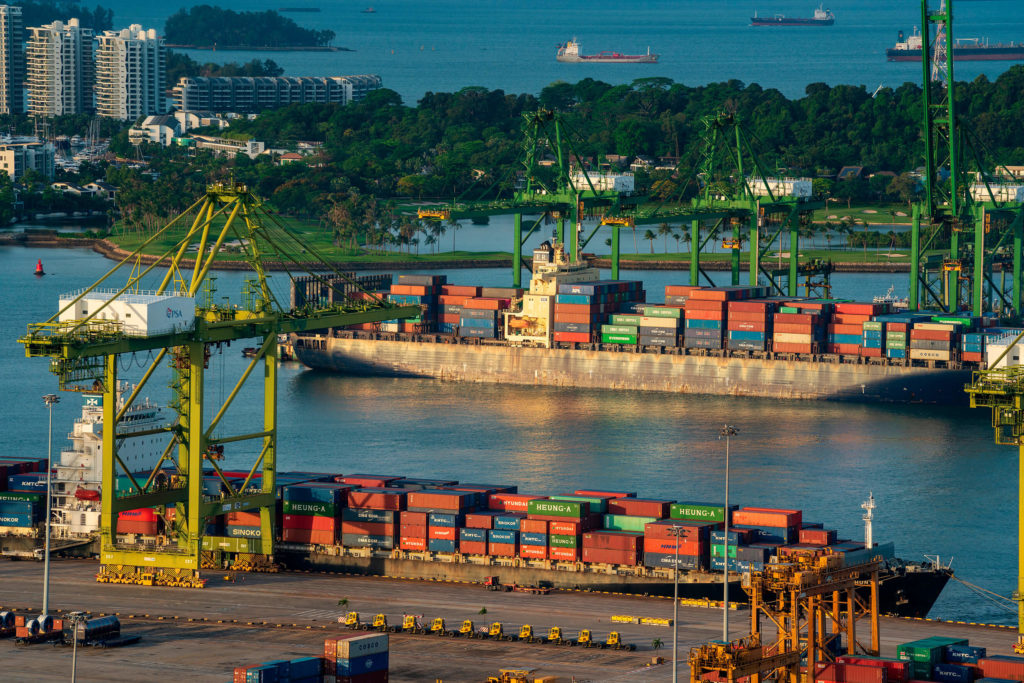If up until now you have only carried out your work on a national level, it is possible that the term Incoterms is unfamiliar to you. If so, no problem, we will explain what they are and what they are used for.
The term Incoterm comes from the expression “International Commercial Terms” or “International Commercial Terms”. Essentially, we can say that they are the terms and requirements of an international sales transaction.T hey stipulate when and where the transfer of risk and cost obligations become effective, as well as other details of the transaction.

Much better, isn’t it? Although you should know that these terms are not always the same, but usually change every 10 years to better adapt to the needs of the moment, and leave behind those with conditions that do not respond to the current situation.
Of course, if you are considering expanding your routes to start working internationally, the best thing you can do is to find out which Incoterms are the most commonly used in international transport.
The most popular Incoterms internationally
As mentioned above, these terms are generally updated every 10 years. For this reason, you may find that some of them are accompanied by a number, referring to a specific update.
Moreover, we cannot speak of Incoterms in general, as they are classified by groups:
- Group E: all risks and costs associated with international transport are borne by the buyer. The seller only has to pack and package the goods. This is identified by the term EXW.
- Group F: the seller does not pay for the main means of transport, but only makes the goods available to the driver hired by the buyer. They are identified by the terms FOB, FAS and FCA.
- Group C: the seller pays for the main transport vehicle, but if something happens to the goods en route, neither party is liable. They are identified by the terms CIP, CIF, CPT and CFR.
- Group D: the seller bears the costs and risks of transporting the goods to their destination. They are identified by the terms DAP, DAT and DDP.
Now that you know the groups of Incoterms, we can move on to what is really important: what are the most commonly used Incoterms in international transport?
The most commonly used Incoterms in international transport contracts
In order for you to start your international journey, you need to know the most used Incoterms in international transport contracts in detail. For this reason, we are going to detail the characteristics and utilities of each one of them, are you ready?
- FAS (Free Alongside Ship): the seller is obliged to place the goods alongside the ship, at the port. He will be the one to manage the export, while the buyer is responsible for the risks during the voyage, the loading costs and the freight
It is an Incoterm that is only used for maritime transport, especially for products with special loading requirements.
- FOB (Free on Board): the seller loads the goods on the ship, but once the goods are loaded, the risks, costs and import formalities are borne by the buyer.
It is an Incoterm used only for maritime transport, but never for goods in containers.
- FCA (Free Carrier): the seller delivers the goods after passing through the export office indicated by the buyer. If they are delivered on the premises, the buyer is responsible for the cost of the transfer. If it is delivered elsewhere, the buyer is responsible for the cost.
When this Incoterm is used for maritime transport, the carrier must issue a “Bill of lading” to the seller, accompanied by the term “On board”, to justify the delivery of the goods.
- CFR(Cost and Freight): the seller bears the cost and freight until arrival at the named port, including export clearance. However, the risk is transferred to the buyer when the goods are loaded onto the ship. This Incoterm is only used for sea transport.
- CIF (Cost Insurance Freight): the seller pays insurance and freight to deliver the goods to the named place. The buyer is responsible for the import costs and inland transport to the destination.
This is an Incoterm used only in maritime transport and is responsible for determining the customs value.
An essential part of international trade
As you can see, it is essential to know the most commonly used Incoterms in international transport contracts in order to know exactly what your obligations are and to avoid taking unnecessary risks. However, if you are still not clear about what you need to start working internationally, you can always count on the help of WebTrans.
Know all our services, take a look at our website.

